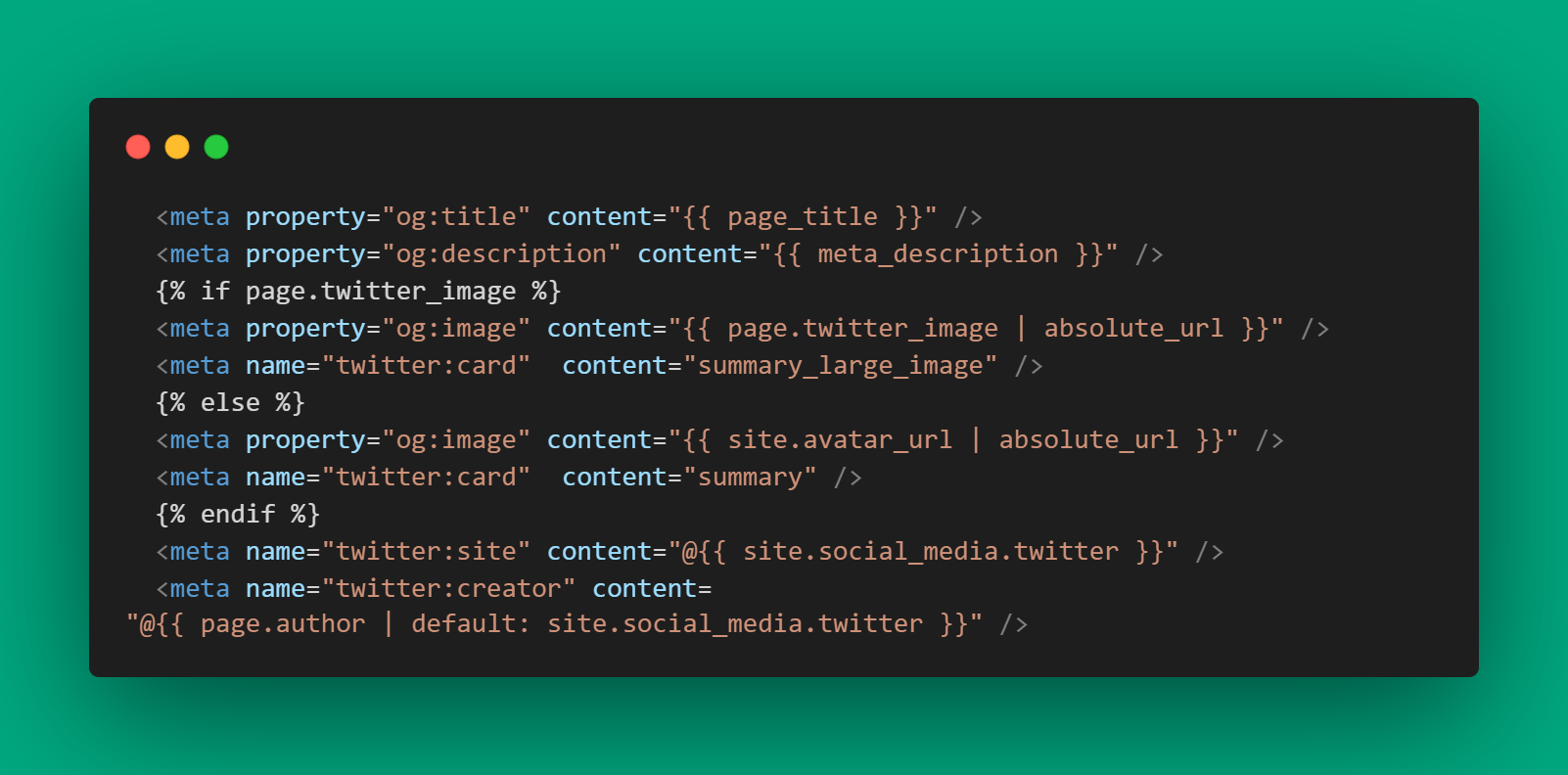My personal page is a static website hosted on Github pages. Posts are written in markdown and the source of all the posts is in my public repository. I tweet about most posts at least once, and it just shows the link, that’s not what I want.
All tweets to my blog should at least show the title and a short description. Maybe even a large image related to the post.
Twitter cards
Making sure Twitter generates this nice Summary card with large image is actually really easy, that is if you have an image describing the post. You just need to add the following tags to the <head> section of your page. Off course you’ll have to fill in the correct values.
<meta property="og:title" content="{Page title here}" />
<meta property="og:description" content="{Page description here}" />
<meta property="og:image" content="{ABSOLUTE_url_to_page_image_here}" />
<meta name="twitter:card" content="summary_large_image" />
<meta name="twitter:site" content="@{own_twitter_account}" />
Twitter cards in Jekyll
This website uses Jekyll to generate static html files based on templates. I already had a header.html file that is included on each page, so that was the best place to add this new information, based on the variables I already had.
<meta property="og:title" content="{{ page_title }}" />
<meta property="og:description" content="{{ meta_description }}" />
{% if page.twitter_image %}
<meta property="og:image" content="{{ page.twitter_image | absolute_url }}" />
<meta name="twitter:card" content="summary_large_image" />
{% else %}
<meta property="og:image" content="{{ site.avatar_url | absolute_url }}" />
<meta name="twitter:card" content="summary" />
{% endif %}
<meta name="twitter:site" content="@{{ site.social_media.twitter }}" />
<meta name="twitter:creator" content="@{{ page.author | default: site.social_media.twitter }}" />
The parts in {{ variable_name }} are liquid variables that are automatically filled in when it’s generating the page.
Code image
I blog a lot about code snippets, so how do you get those nice images you ask? I found this awesome VS Code extension called Code snapshot that does exactly what the name implies. You select some code, open the extension and BAM awesome looking image of the code you selected.

